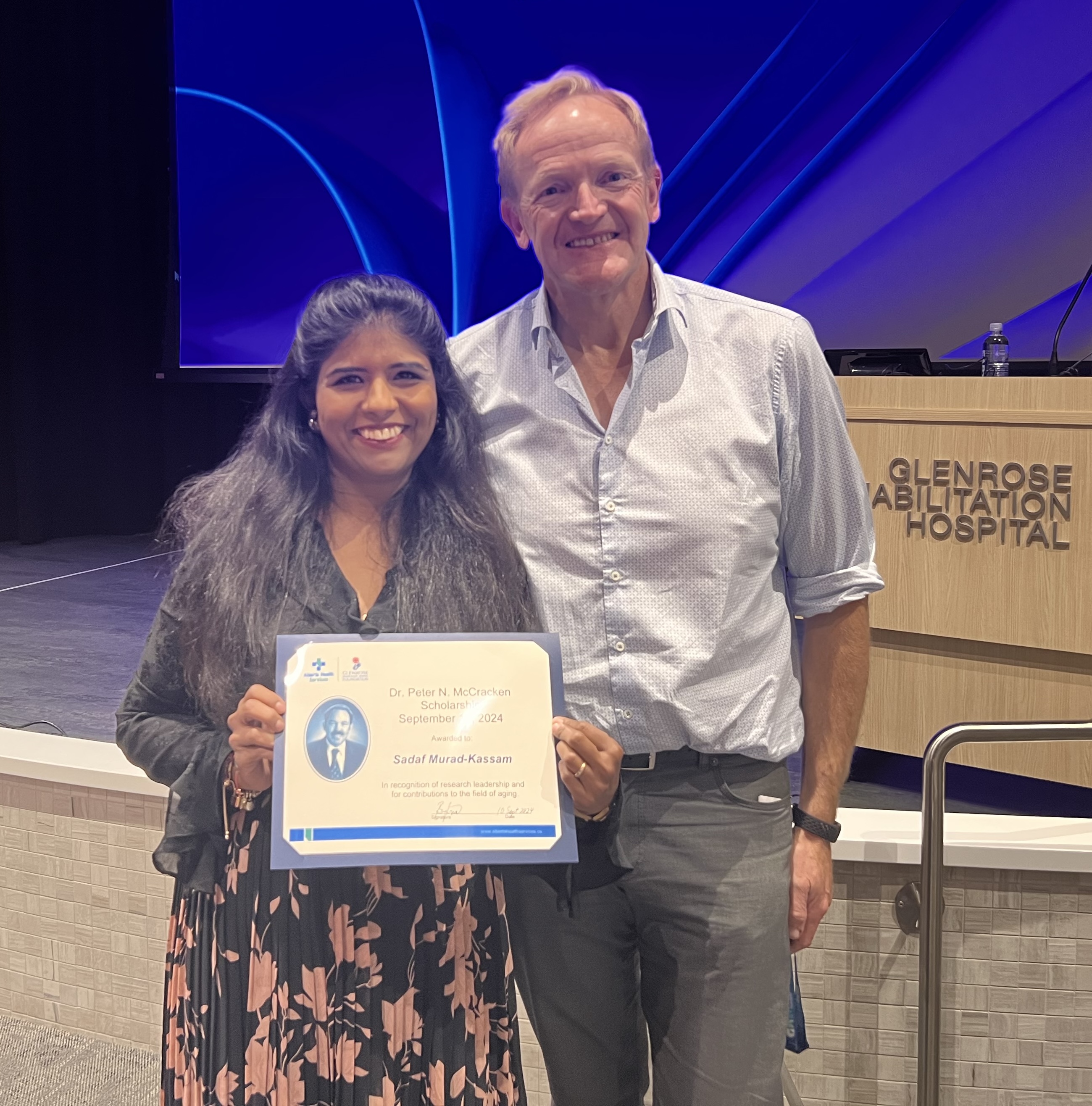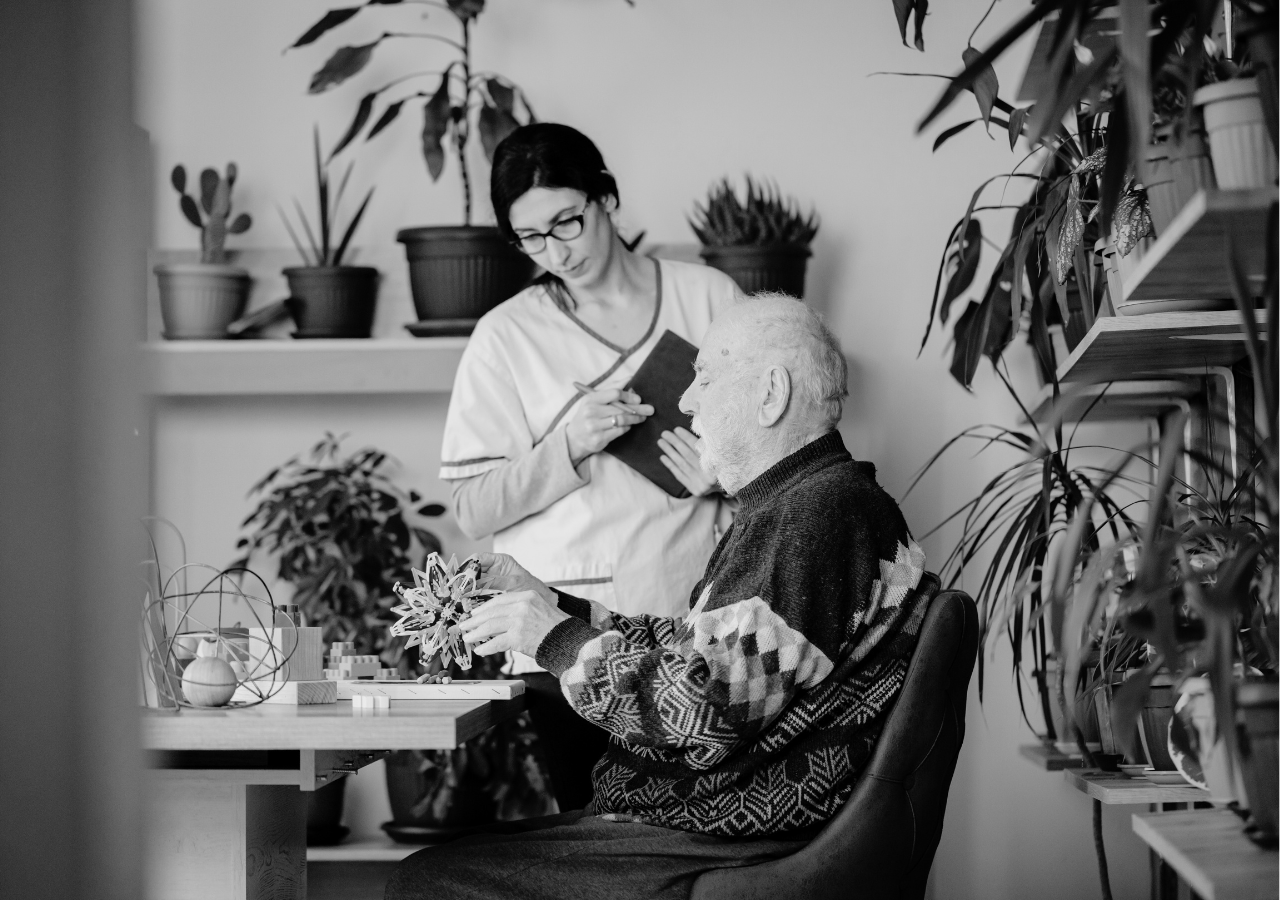When we think of the word dementia, the phrases ‘mental illness’ or ‘aging disease’ might come to mind. But dementia is neither—it’s a general term for the decline in cognitive abilities like everyday remembering, thinking, or reasoning. While it most commonly affects older adults, it can begin in those as young as 35.
In a healthy individual, cells in the brain called neurons connect to one another and send electrical signals that communicate information and allow us to engage in all types of activity, from thinking and speaking to moving. In patients with dementia though, the connections are frayed.
There are many causes for dementia, some of which are still unknown. Certain types are caused by genetics, where the body produces extra proteins that damage healthy neurons and their connections. Other types, such as vascular dementia, occur after a stroke and cause damage to blood vessels in the brain, limiting the oxygen needed for regular neuron function. In short, it’s caused by alterations in the brain’s neurochemistry, which makes dementia a neurological disease and not a mental illness or psychiatric condition.
Chronic stress and post-traumatic stress disorder (PTSD), often experienced by immigrants and refugees, can be contributing factors to long-term cognitive health issues. Factors such as exposure to war, displacement to refugee camps, and the challenges of adapting to new countries and cultures can place the brain under constant strain, perpetuating a heightened 'fight or flight' response. Over time, this relentless stress can lead to cognitive fatigue and increase the risk of developing dementia later in life.
Common symptoms include changes in memory that affect daily activities, like forgetting how to prepare a favourite meal, or not remembering how to brush one’s teeth. Some people might also struggle repeatedly to find the right words, have impaired judgement, or misplace items. More subtle symptoms can include changes in mood or personality—for example, suddenly becoming confused, fearful, or withdrawn from others over time.
Across the world, nearly 55 million people live with dementia. By 2050, this number is expected to rise to 139 million. Yet, a stigma prevails in many societies where the Jamat resides. In Western countries, many dementia patients and caregivers come from diverse ethnic and cultural backgrounds. However, there remains a lack of research on culturally inclusive dementia care, particularly for South Asian, Central Asian and Arab communities, resulting in gaps in equitable healthcare access.
“Common among such cultures is family-based care,” said Sadaf Murad-Kassam, a registered nurse, researcher and doctoral student at the University of Alberta.
“Nowadays, changes in the community and family structure make it more challenging for families to provide the care that they did 10 or 20 years ago. They are not as joint as they used to be—they are more segregated.”
This has led to caregivers experiencing burnout or major stress due to a lack of support as they try to care for themselves, their own families, and their children.
Sadaf explained that her research focuses specifically on these communities because patients
Sadaf

Throughout her clinical journey, Sadaf has acquired experience in geriatric care and worked in dementia units, long-term care, emergency care, ICU, surgery, and general medicine acute care settings. Her interest in dementia, in particular, stemmed from caring for her late grandmother, who had dementia. By investigating culturally inclusive, person-centred care, Sadaf aims to promote inclusivity for dementia patients, both within healthcare practices as well as in the Jamat.
There are several reasons why culturally inclusive patient care matters, she says. One example is reducing the language barrier that a patient might face. Over time, individuals with dementia often lose their learned languages and revert back to their native tongue. If admitted to the hospital for dementia or other conditions, they might not be able to communicate with doctors and nurses, leading to more frustration.
“When a small child wants to express something, they [often] don’t have the words, so they cry or become fidgety,” she said. “It’s the same with someone that has dementia—when they struggle to communicate, they struggle with behavioural challenges because they aren’t able to express in words that something is bothering them.”
To address these issues, Sadaf stressed the importance of having healthcare providers who speak multiple languages or can learn a few words in other languages to more easily identify the patient’s immediate needs and provide the appropriate care. However, the need for culturally inclusive care transcends the language barrier. It’s also important to make room for spirituality and religion in a patient’s care to support their well-being in a holistic way.
“When you enter some hospitals, the spiritual aspect is usually missing,” Sadaf explained. “You cannot see anything that connects you to spirituality or religious things. Maybe that patient is used to reading the Qur’an every day, or any holy book, reciting tasbih every day out loud. That can be scary or frustrating for some healthcare professionals—but it’s a ritual or a habit that’s important for the patient to maintain.”
Sadaf added that the same challenge can be observed in Jamatkhanas if an individual with dementia begins to recite or pray loudly. She explained the importance of respecting the person rather than alienating them or using non-verbal communication to quieten them.
“As a global Jamat, we should be welcoming people with dementia rather than closing doors. Jamatkhana might be a common element for them throughout their life or journey of settling into a new community. Taking that common element away can increase their behavioural issues and dementia severity,” she said.
“How we create room and awareness—that’s what matters. And not just room for them, but making room for their family members and creating opportunities for young people to understand what their parents and elders are going through and creating resources for them.”
Sadaf’s research is helping to pave the way for more inclusive, patient-centred healthcare where individuals can receive care that honours their humanity and holistically improves their well-being as they navigate their condition. She acknowledges that her research and awards are a testament to the voices of all patients with dementia and their caregivers:
“My research is not for them; my research is with them.”








